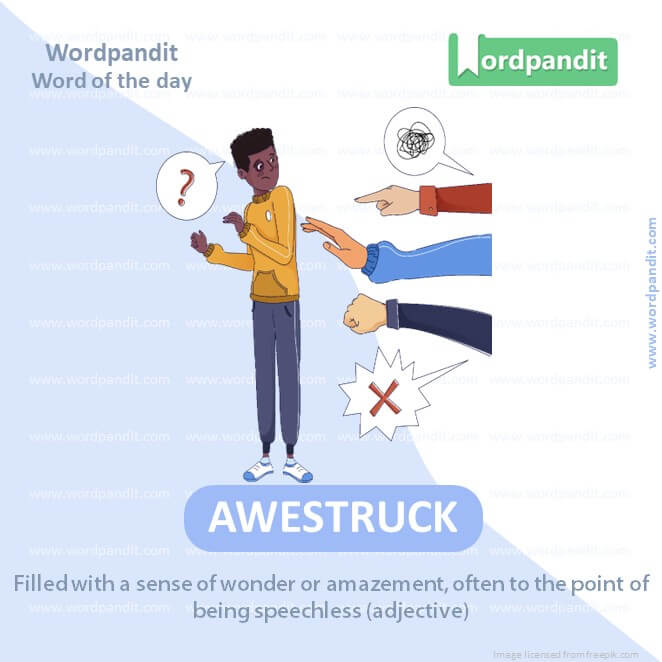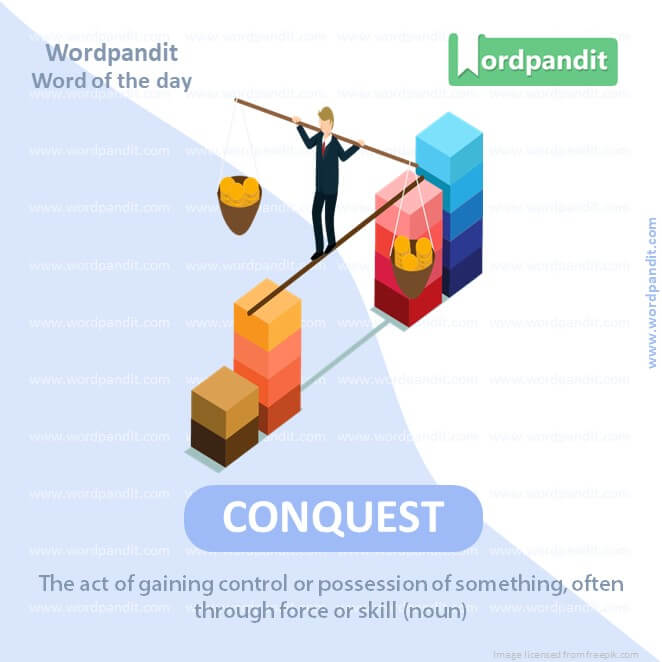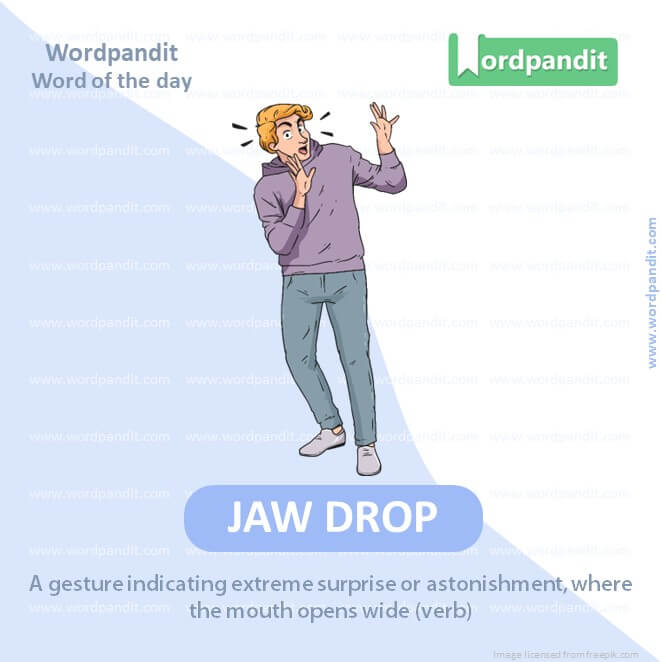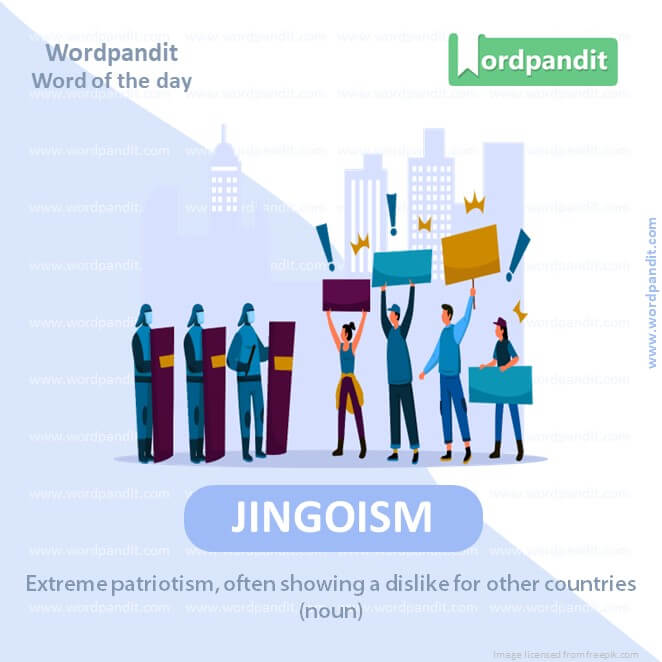Daily Vocabulary Words: List of Daily Used Words in Leading Indian Newspapers
Hi there. Welcome to this special section @ Wordpandit. Our endeavour here is straightforward: highlighting daily vocabulary words that you would come across in leading newspapers in the country. We have included the following newspapers in our selection:
• The Times of India
• The Economic Times
• Hindustan Times
• Mint
• Indian Express
We are putting in extensive work to develop your vocabulary. All you have to do is be regular with this section and check out this post daily. This is your repository of commonly used words; essentially, we are posting a list of daily used words. Hence, this has significant practical application as it teaches you words that are commonly used in leading publications mentioned above.
Visit the website daily to learn words from leading Indian newspapers.

WORD-1: STELLAR
CONTEXT: While India’s mega, stellar achievements are still being processed by awestruck citizens, one begins to wonder about emotions closer to the heart and home that are a whole lot more grounded — the dark side of our own lives Pink Floyd momentarily overtook the imagination of urban desi fans who recalled the band’s 1970’s album, “The Dark side of the Moon”, while watching Chandrayaan land on the South Pole of our beloved Chanda Mama.
SOURCE: The Times of India
EXPLANATORY PARAGRAPH: Stellar is like being the best soccer player on the team or getting all your spelling words right. It means you’re doing something really, really well, almost like a shining star.
MEANING: Outstanding or excellent in quality or performance (adjective).
PRONUNCIATION: Stell-er
SYNONYMS: Exceptional, Outstanding, Remarkable, Superb, Excellent, Impressive, Splendid
USAGE EXAMPLES:
1. She gave a stellar performance in the play.
2. The company had a stellar year with high profits.
3. The athlete had a stellar career.
4. The food at the restaurant was stellar.

WORD-2: AWESTRUCK
CONTEXT: While India’s mega, stellar achievements are still being processed by awestruck citizens, one begins to wonder about emotions closer to the heart and home that are a whole lot more grounded — the dark side of our own lives Pink Floyd momentarily overtook the imagination of urban desi fans who recalled the band’s 1970’s album, “The Dark side of the Moon”, while watching Chandrayaan land on the South Pole of our beloved Chanda Mama.
SOURCE: The Times of India
EXPLANATORY PARAGRAPH: Awestruck is when you see something so amazing or beautiful that you can’t even talk. It’s like seeing a huge rainbow or a fireworks show and thinking, “Wow!”
MEANING: Filled with a sense of wonder or amazement, often to the point of being speechless (adjective).
PRONUNCIATION: Aw-struck
SYNONYMS: Amazed, Astonished, Impressed, Speechless, Stunned, Dumbfounded, Overwhelmed
USAGE EXAMPLES:
1. The children were awestruck by the magician’s tricks.
2. The audience was awestruck by her singing.
3. I was awestruck by the beauty of the landscape.
4. He was awestruck when he met his favorite author.

WORD-3: CONQUEST
CONTEXT: It was an awe-inspiring moment for overjoyed Indians as we momentarily stopped exhaling during the dramatic conquest of unknown lunar territory. The moon has dominated our consciousness ever since, culminating with the spectacular Super Blue Moon this week. The sun was briefly overshadowed while the world remained moonstruck. Till India announced ISRO’s Aditya-L1 mission, leading to a collective jaw drop.
SOURCE: The Times of India
EXPLANATORY PARAGRAPH: Conquest means to win or take something by using strength or clever tricks. Imagine you’re playing a game of tag, and you tag everyone. You would be the winner or make a conquest!
MEANING: The act of gaining control or possession of something, often through force or skill (noun).
PRONUNCIATION: Kon-kwest
SYNONYMS: Victory, Triumph, Capture, Domination, Overthrow, Subjugation, Annexation
USAGE EXAMPLES:
1. The conquest of new markets helped the company grow.
2. The general was famous for his military conquests.
3. The conquest of the championship was a team effort.
4. The exploration led to the conquest of new lands.

WORD-4: JAW DROP
CONTEXT: It was an awe-inspiring moment for overjoyed Indians as we momentarily stopped exhaling during the dramatic conquest of unknown lunar territory. The moon has dominated our consciousness ever since, culminating with the spectacular Super Blue Moon this week. The sun was briefly overshadowed while the world remained moonstruck. Till India announced ISRO’s Aditya-L1 mission, leading to a collective jaw drop.
SOURCE: The Times of India
EXPLANATORY PARAGRAPH: Jaw drop means that something is so surprising or amazing that your mouth opens wide without you even realizing it. Imagine you see a giant cake as tall as you; you might be so amazed that your jaw drops!
MEANING: A gesture indicating extreme surprise or astonishment, where the mouth opens wide (verb).
PRONUNCIATION: Jaw-drop
SYNONYMS: Gobsmacked, Stunned, Aghast, Flabbergasted, Amazed, Astonished, Shocked
USAGE EXAMPLES:
1. Her jaw dropped when she saw the surprise party.
2. My jaw dropped at the news of his sudden success.
3. His jaw dropped when he saw the gigantic sculpture.
4. The audience’s jaws dropped during the incredible performance.

WORD-5: JINGOISM
CONTEXT: I have in the past taken the Indian media and analysts to task for jingoism and dubious claims of military greatness. Surely one should do the same with the reportage of most of the western media on the Ukraine war. They were, rightly, appalled when Russia invaded Ukraine claiming it was part of Akhand Russia. But moral indignation should not slant war reportage.
SOURCE: The Times of India
EXPLANATORY PARAGRAPH: Jingoism is when someone thinks their country is the best and doesn’t care about other countries. It’s like saying, “My team is the best, and all other teams are bad,” but for a whole country.
MEANING: Extreme patriotism, often showing a dislike for other countries (noun).
PRONUNCIATION: Jin-go-izm
SYNONYMS: Nationalism, Chauvinism, Xenophobia, Militarism,
Patriotism
USAGE EXAMPLES:
1. The politician was accused of jingoism for his aggressive foreign policy.
2. The movie was criticized for promoting jingoism.
3. Her jingoism made her intolerant of other cultures.
4. The media was blamed for spreading jingoism during the conflict.
Certainly, here are the words formatted as you requested:
WORD-6: DUBIOUS
CONTEXT: I have in the past taken the Indian media and analysts to task for jingoism and dubious claims of military greatness. Surely one should do the same with the reportage of most of the western media on the Ukraine war. They were, rightly, appalled when Russia invaded Ukraine claiming it was part of Akhand Russia. But moral indignation should not slant war reportage.
SOURCE: The Times of India
EXPLANATORY PARAGRAPH: Dubious means you’re not sure about something and it doesn’t feel right. Imagine if someone told you that pigs could fly; you’d be dubious because you know that pigs can’t fly.
MEANING: Filled with doubt or uncertainty; questionable (adjective).
PRONUNCIATION: Doo-bee-us
SYNONYMS: Skeptical, Uncertain, Doubtful, Questionable, Suspicious, Unconvinced, Hesitant
USAGE EXAMPLES:
1. He had a dubious expression on his face.
2. The company’s dubious practices came to light.
3. She was dubious about the proposal.
4. The claim seemed dubious at best.
WORD-7: APPALLED
CONTEXT: I have in the past taken the Indian media and analysts to task for jingoism and dubious claims of military greatness. Surely one should do the same with the reportage of most of the western media on the Ukraine war. They were, rightly, appalled when Russia invaded Ukraine claiming it was part of Akhand Russia. But moral indignation should not slant war reportage.
SOURCE: The Times of India
EXPLANATORY PARAGRAPH: Appalled is when something is so bad or scary that it makes you feel upset or shocked. If someone dumped a bucket of cold water on you out of nowhere, you’d be appalled!
MEANING: Shocked and dismayed, usually because of something terrible or disturbing (adjective).
PRONUNCIATION: Uh-pald
SYNONYMS: Shocked, Horrified, Dismayed, Outraged, Aghast, Disgusted, Repelled
USAGE EXAMPLES:
1. She was appalled by the rude behavior.
2. The teacher was appalled by the cheating.
3. The public was appalled by the news.
4. He was appalled by the lack of safety measures.
WORD-8: INDIGNATION
CONTEXT: I have in the past taken the Indian media and analysts to task for jingoism and dubious claims of military greatness. Surely one should do the same with the reportage of most of the western media on the Ukraine war. They were, rightly, appalled when Russia invaded Ukraine claiming it was part of Akhand Russia. But moral indignation should not slant war reportage.
SOURCE: The Times of India
EXPLANATORY PARAGRAPH: Indignation is when you feel really, really upset because something is not fair or right. It’s like when someone takes your toy without asking, and you feel like stomping your feet because it’s just not fair.
MEANING: Strong displeasure or anger caused by something that is unfair or wrong (noun).
PRONUNCIATION: In-dig-nay-shun
SYNONYMS: Outrage, Anger, Resentment, Irritation, Annoyance, Fury, Displeasure
USAGE EXAMPLES:
1. She felt indignation when her work was ignored.
2. The crowd expressed their indignation through protests.
3. His indignation was evident in his speech.
4. The unfair treatment led to public indignation.
WORD-9: SLANT
CONTEXT: I have in the past taken the Indian media and analysts to task for jingoism and dubious claims of military greatness. Surely one should do the same with the reportage of most of the western media on the Ukraine war. They were, rightly, appalled when Russia invaded Ukraine claiming it was part of Akhand Russia. But moral indignation should not slant war reportage.
SOURCE: The Times of India
EXPLANATORY PARAGRAPH: Slant means to lean or tilt something in a certain way. It can also mean showing something in a way that makes people think a certain thing. Imagine tilting a picture on the wall or telling a story to make someone seem like a hero.
MEANING: To lean or incline in a particular direction (verb); a particular point of view in presenting or discussing a subject (noun).
PRONUNCIATION: Slant
SYNONYMS: Tilt, Slope, Angle, Bias, Perspective, Incline, Leaning
USAGE EXAMPLES:
1. The article had a slant towards a certain political view.
2. The road slants downward towards the valley.
3. He gave a different slant on the situation.
4. The sunlight slanted through the window.
WORD-10: CHORTLED
CONTEXT: This bias is as marked in economic reportage predicting the collapse of the Russian economy. When western sanctions were imposed on Russia after it invaded Ukraine, almost all western experts predicted disaster. They said the sanctions would crush the Russian economy, empty its coffers, and force Putin to retreat. Expert estimates of the fall in Russian GDP in 2022 ranged from 15% (The Institute of International Finance) to 11% (the World Bank) and 8.5% (The IMF). The western media chortled with delight.
SOURCE: The Times of India
EXPLANATORY PARAGRAPH: Chortled means to laugh in a way that’s full of joy, kind of like a chuckle but even happier. Imagine laughing so much when you hear a funny joke that you can’t stop smiling!
MEANING: To laugh joyfully or gleefully (verb).
PRONUNCIATION: Chor-tuld
SYNONYMS: Giggled, Chuckled, Snickered, Guffawed, Tittered, Laughed, Cackled
USAGE EXAMPLES:
1. She chortled at the funny joke.
2. The kids chortled as they played.
3. He chortled in delight when he won.
4. The audience chortled during the comedy show.
Vocabulary Words in English
English is renowned for its vast and vibrant lexicon. As such, mastering vocabulary words in English is a cornerstone of effective communication and a critical part of learning the language. So, how should one go about learning vocabulary words in English? Let’s delve into some practical methods.
Firstly, reading is an excellent strategy for encountering diverse vocabulary words in English. Magazines, books, newspapers, and online articles allow for exposure to different styles and contexts. While reading, notice how words are used and explore their meanings, thereby improving comprehension and retention of vocabulary words in English.
Secondly, having a dedicated vocabulary journal can be beneficial. It provides a focal point to compile, categorize, and learn new vocabulary words in English. Documenting the word, its definition, synonyms, antonyms, and a sample sentence cement the understanding and application of the newly learned vocabulary words in English.
Mnemonic devices are instrumental in learning vocabulary words in English. These can be visual or auditory cues or clever word associations which help to remember meanings with greater ease. For instance, the word ‘benevolent’ could be associated with a nurturing character like ‘Ben,’ which aids in recalling the word’s meaning of kind or good-hearted.
Additionally, using vocabulary words in English in your daily communication is a powerful method for cementing learning. Regularly practiced words move from short-term to long-term memory, making them a natural part of your language resource.
Lastly, having a curious mindset towards language learning can transform the process. The history of words, their origins, and changes in meaning over time serve to evoke interest and create deep connections with vocabulary words in English.
In conclusion, effective learning of vocabulary words in English involves a dynamic interplay of reading, maintaining a vocabulary journal, using mnemonics, practicing regularly, and nurturing an inherent curiosity about the language. These steps ensure that the language learning journey is both fascinating and fruitful.











